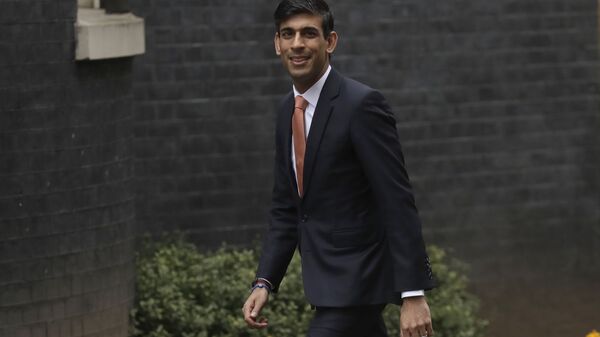For more on this story, Sputnik has spoken with economist and wealth adviser Jonathan Davis.
Sputnik: What are your thoughts on Sunak's new budget, which is being heralded as the biggest wave of public spending since 1950?
Jonathan Davis: Thomas Sowell, the great economist and philosopher, who I am glad to say is still with us, although he's well into his 80s in the United States, says that the first priority of a politician is to get elected. The second is to get re-elected, and anything else is a long way behind.
So this is a budget for 2024, in other words the next general election, and it seems to me that this will achieve the objective of getting the incumbent party / the incumbent government re-elected. It is shoot spending on infrastructure, on health, on education - I've no idea what they mean by "green industries" - research and development. There's no question that this will be phenomenal for many businesses in the United Kingdom. This will help economic growth for the next 5, 10, 15 years. Of that, I have no doubt.
Sputnik: With hundreds of billions being pledged, how is the government intending to pay for this budget allocation?
Jonathan Davis: Well, they've told us that they will be increasing borrowings over the next five years, from what they've said we're going to borrow by 100 billion pounds, which is something like 55-60% of the total extra spending, and of course they expect to get higher taxes from the economic growth - which I suspect they will.
The issue of course that they're assuming is that government borrowing interest rates, the cost it takes to service debt, which has recently plummeted to literally all-time lows - they're assuming that those interest rates stay at these extremely low levels.
Now, that is an assumption which they're making. Five years out, I can't really say. My guess is that borrowing rates will be higher than they are today, but it's hard to say. But that's not their problem. The politicians, as Sir Robin Day said decades ago, "a politician who is here today is gone tomorrow". Their problem is getting re-elected in five years time, and that's what this will achieve.
Sputnik: If this isn't the right way forward, how should governments be spending now and in the future?
Jonathan Davis: I don't think there's any doubt that the United Kingdom needs infrastructure spending - on 5G, on research and development - those are some of the areas that certainly I think we should be spending on. As to whether or not we actually need more hospitals, we need more school, well that of course, is debatable.
Of course, we will go above 2,000 billion pounds of government debt. We're practically there already. It's absolutely huge. It's practically the size of the UK economy. As I say, whilst interest rates are extremely low, I mean, literally all-time lows, then they are making the bet that all will be well.
They should be paying down debt that is at higher interest rates and they should be borrowing at extremely low rates, not necessarily spending it on many of the things that they're going to spend on, but instead, they should pay off higher-interest debt.




